Organic vs. non-organic growing
wordwiz
13 years ago
Related Stories
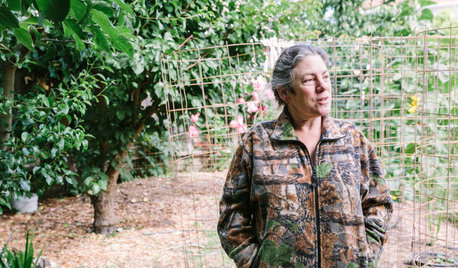
FARM YOUR YARDTo Get the Food They Believe In, These Urbanites Grow Their Own
Home gardeners farming on their city lots find that local, organic food isn’t the only reward
Full Story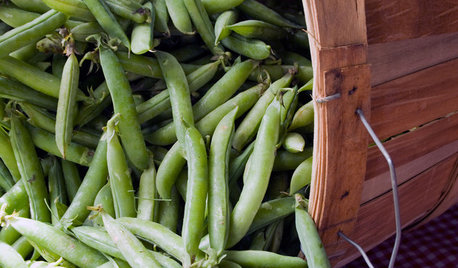
COOL-SEASON CROPSCool-Season Vegetables: How to Grow Peas
Their sweetness isn't just for spring. Peas thrive in cool weather too, adding a garden-fresh note to soups, salads and more through fall
Full Story
EDIBLE GARDENSHow to Grow Your Own Sweet Summer Crops
This guide will help any gardener get started on growing the freshest warm-season veggies and berries for summer
Full Story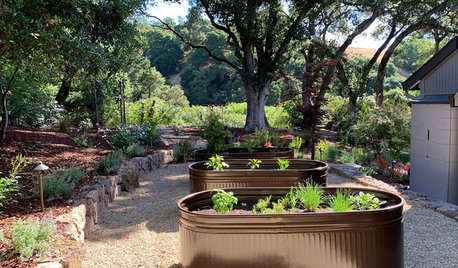
FARM YOUR YARD6 Things to Know Before You Start Growing Your Own Food
It takes time and practice, but growing edibles in the suburbs or city is possible with smart prep and patience
Full Story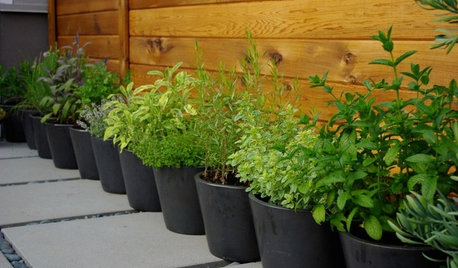
GARDENING GUIDES6 Ways to Grow Edibles in Small Places
No big backyard? Join in the grow-your-own fun with these small-space ideas for planting vegetables, fruits and herbs
Full Story
EDIBLE GARDENSSummer Crops: How to Grow Tomatoes
Plant tomato seedlings in spring for one of the best tastes of summer, fresh from your backyard
Full Story
HOUSEPLANTSSimple Pleasures: Grow a Cheery Indoor Garden
Let houseplants work their magic on your rooms and you. These ideas will get you growing
Full Story
EARTH DAYGrow a Beautiful Garden With Ecofriendly Greywater
Reducing home water waste means lower bills and a healthier planet. Here's how to set up a greywater home irrigation system that can help
Full Story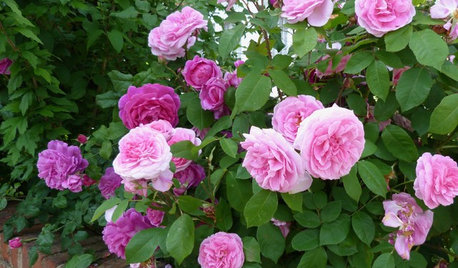
GARDENING GUIDESWhat Kind of Roses Should You Grow?
Want to add the beauty of roses to your garden? Find out which ones, from old-fashioned to modern, are right for you
Full Story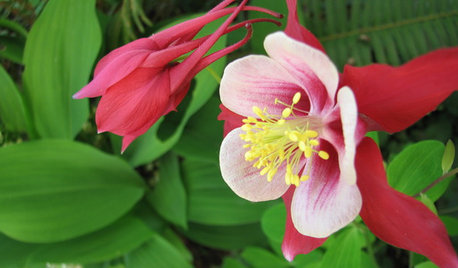
GARDENING FOR BUTTERFLIESGreat Design Plant: Columbine Grows Happily in Shade and Sun
Its ethereal beauty comes from complex forms and wide-ranging colors, but columbine’s benefits are highly attractive too
Full Story





boulderbelt
myfamilysfarm
Related Professionals
Arlington Landscape Contractors · Biloxi Landscape Contractors · Ellensburg Landscape Contractors · Fort Mill Landscape Contractors · Lynwood Landscape Contractors · Mesa Landscape Contractors · Newnan Landscape Contractors · North Plainfield Landscape Contractors · Oakland Landscape Contractors · San Bruno Landscape Contractors · Shaker Heights Landscape Contractors · Vashon Landscape Contractors · Watertown Landscape Contractors · Hawaiian Gardens Landscape Contractors · Clearfield Landscape Contractorscowpie51
myfamilysfarm
dirtdigging101
boulderbelt
wordwizOriginal Author
dirtdigging101
wordwizOriginal Author
boulderbelt
dirtdigging101
little_minnie